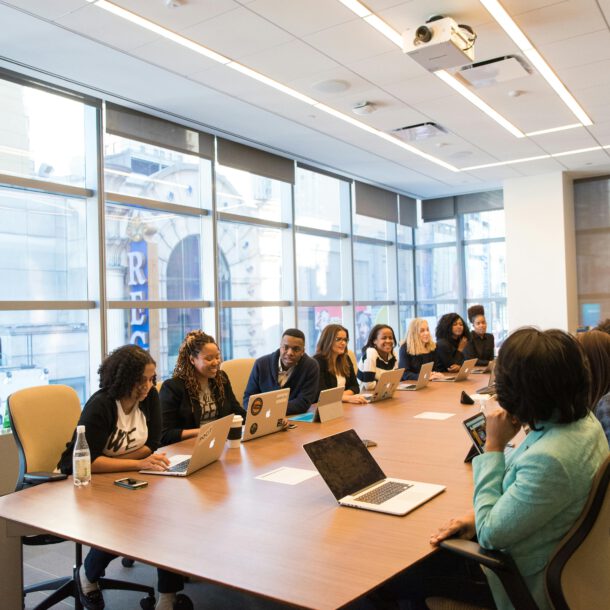
Enhancing Team Effectiveness: A Coaching Framework for Organizations
Enhancing Team Effectiveness: A Coaching Framework for Organizations
In today’s rapidly evolving business environment, the ability to foster effective teams has become a critical success factor for organizations. Whether you’re leading a startup or managing a mature company, the power of cohesive, high-performing teams cannot be underestimated. Teams that work well together not only drive innovation but also enhance productivity, employee satisfaction, and overall organizational success. Yet, achieving such levels of team effectiveness is no easy feat. It requires a deliberate approach to leadership, communication, and collaboration—areas where coaching can make a significant impact.
Coaching has emerged as a powerful tool for developing team effectiveness. By applying structured coaching frameworks, organizations can cultivate environments where teams thrive. Coaching helps to clarify roles, improve communication, and align individual goals with the broader organizational objectives. For expatriate women in leadership roles, who often face unique challenges, coaching offers personalized support to navigate the complexities of leading diverse teams in unfamiliar cultural settings.
As a coach with over two decades of experience, I have seen firsthand the transformative impact that effective coaching can have on teams. My approach is deeply rooted in clarity, integrity, passion, and positivity. I believe that by creating a safe space for open dialogue, and providing the right tools and frameworks, teams can overcome obstacles and achieve their full potential.
We will explore the key components of a coaching framework designed to enhance team effectiveness within organizations. We will delve into the importance of clear communication, the role of leadership in fostering collaboration, the impact of cultural awareness, and the necessity of continuous development. Through practical insights and strategies, you will gain a deeper understanding of how to implement a coaching approach that not only improves team dynamics but also drives organizational success.
The Importance of Clear Communication
Clear communication is the cornerstone of any effective team. It is the thread that weaves together the diverse talents, perspectives, and skills within a group. Without it, even the most skilled team can falter. In my experience, one of the most common challenges teams face is the lack of clear and consistent communication. This often leads to misunderstandings, duplicated efforts, and a general sense of frustration.
A well-defined coaching framework can help address these communication challenges. By establishing regular check-ins, setting clear expectations, and fostering an environment of open dialogue, teams can significantly improve their communication. For example, implementing a structured feedback process allows team members to voice their concerns and ideas in a constructive manner. This not only resolves issues quickly but also encourages a culture of continuous improvement.
Moreover, coaching can help leaders refine their communication skills, ensuring that they convey messages in a way that resonates with their team members. This is particularly important for expatriate women in leadership positions who may need to navigate language barriers and cultural differences. By honing their communication skills, they can more effectively lead their teams and build stronger, more cohesive units.
In practice, I have found that teams benefit greatly from communication workshops as part of their coaching. These workshops provide a safe space for team members to practice and improve their communication skills, leading to better collaboration and a more positive team environment. Ultimately, clear communication lays the foundation for all other aspects of team effectiveness.
Leadership’s Role in Fostering Collaboration
Effective leadership is crucial for fostering collaboration within teams. Leaders set the tone for how team members interact with each other and how they approach their work. In my coaching practice, I emphasise the importance of leadership that is both supportive and empowering. Leaders who engage with their teams, encourage collaboration, and provide the resources needed for success are the ones who drive their teams to excel.
One key aspect of leadership that enhances collaboration is the ability to delegate effectively. Leaders who trust their team members with responsibilities not only empower them but also create opportunities for collaboration. This trust builds confidence within the team, enabling members to take initiative and contribute their unique strengths to the collective effort.
In addition, leaders must also be skilled in conflict resolution. Disagreements are inevitable in any team setting, but how a leader handles these conflicts can make or break the team’s cohesion. Coaching can equip leaders with the tools and strategies needed to navigate conflicts constructively, turning potential disruptions into opportunities for growth and stronger collaboration.
For expatriate women leaders, fostering collaboration in a multicultural team can be particularly challenging. Cultural differences can sometimes lead to misunderstandings or varying expectations. Through coaching, these leaders can develop a deeper understanding of cultural dynamics and learn how to leverage these differences to enhance collaboration rather than let them become a source of friction.
By focusing on leadership development, coaching helps leaders cultivate an environment where collaboration flourishes. This, in turn, leads to more innovative and productive teams, driving overall organizational success.
The Impact of Cultural Awareness
In today’s globalized world, cultural awareness is no longer just a nice-to-have but a necessity. Teams are increasingly diverse, with members bringing different cultural perspectives and experiences to the table. While this diversity can be a strength, it can also present challenges if not managed effectively. Cultural misunderstandings can lead to conflicts, reduced morale, and decreased productivity.
Coaching plays a vital role in developing cultural awareness within teams. By helping team members understand and appreciate cultural differences, coaching fosters an environment of inclusivity and respect. This cultural awareness not only enhances team dynamics but also contributes to the overall effectiveness of the organization.
For expatriate women in leadership roles, cultural awareness is particularly crucial. Leading a team in a foreign country requires an understanding of the local culture and how it influences workplace behaviours and expectations. Through coaching, these leaders can gain insights into cultural nuances and learn strategies for adapting their leadership style to better align with their team’s cultural context.
In practice, I have found that teams benefit from cultural awareness training as part of their coaching framework. These sessions help team members recognize and appreciate their differences, leading to more effective communication and collaboration. Additionally, culturally aware teams are better equipped to serve diverse clients and stakeholders, further enhancing the organization’s success.
Cultural awareness is not just about avoiding misunderstandings; it is about leveraging diversity to drive innovation and creativity. By fostering cultural awareness, coaching helps teams unlock their full potential and achieve greater effectiveness.
Continuous Development and Learning
Continuous development and learning are essential for sustaining team effectiveness over time. In today’s fast-paced business environment, teams must be adaptable and ready to learn new skills to stay competitive. Coaching provides a structured approach to continuous development, ensuring that teams are always evolving and improving.
One of the key benefits of coaching is that it encourages a growth mindset within teams. By focusing on development, coaching helps team members embrace challenges, learn from failures, and continuously seek out opportunities for improvement. This growth mindset is particularly important in rapidly changing industries where staying ahead of the curve is crucial for success.
For leaders, continuous development is equally important. Through coaching, leaders can develop new skills, gain fresh perspectives, and refine their approach to leadership. This ongoing development ensures that they remain effective in their roles and continue to inspire their teams to achieve their best.
Incorporating continuous development into a coaching framework also helps organizations retain top talent. Employees who feel supported in their professional growth are more likely to stay with the organization and contribute to its long-term success. This is especially important for small and medium-sized enterprises (SMEs) where retaining skilled employees can be a significant challenge.
In conclusion, continuous development is not just a benefit of coaching; it is a critical component of team effectiveness. By committing to ongoing learning, teams and leaders alike can ensure they are always prepared to meet new challenges and seize new opportunities.
Creating a Coaching Culture
Creating a coaching culture within an organization is one of the most effective ways to ensure long-term team effectiveness. A coaching culture is one where coaching is not just an occasional intervention but a core part of the organization’s way of working. In such a culture, continuous development, open communication, and collaboration are embedded in the organization’s DNA.
To establish a coaching culture, leadership commitment is essential. Leaders must model coaching behaviours and demonstrate their value by actively engaging in coaching themselves. This top-down approach helps to embed coaching into the organizational fabric, making it a natural part of everyday operations.
Another key aspect of creating a coaching culture is providing access to coaching resources and training for all employees. This ensures that everyone in the organization has the opportunity to develop their skills and contribute to the team’s effectiveness. It also fosters a sense of ownership and accountability, as team members feel empowered to take charge of their development.
For expatriate women in leadership roles, a coaching culture can be particularly supportive. It provides a structured environment where they can access the resources and support they need to navigate the unique challenges they face in their roles.
In my experience, organizations that have successfully created a coaching culture see significant improvements in team effectiveness, employee engagement, and overall performance. By making coaching a central part of your organization, you can create an environment where teams thrive, and success is sustained over the long term.
In today’s competitive business landscape, team effectiveness is a crucial determinant of organizational success. Through a structured coaching framework, organizations can enhance communication, foster collaboration, and develop cultural awareness, all while promoting continuous learning and development. As a coach, my mission is to help you unlock the full potential of your teams and create a coaching culture that drives sustained success. If you’re ready to take your team to the next level, I’m here to guide you every step of the way. Let’s work together to build a future where your teams are not just effective but truly exceptional.
